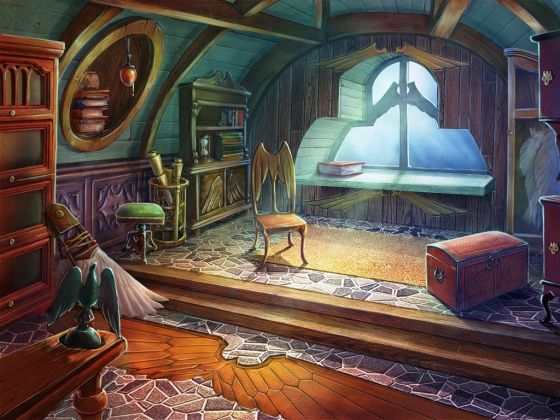Difference between revisions of "Hide (cantrip)"
Tao alexis (talk | contribs) |
Tao alexis (talk | contribs) |
||
| (5 intermediate revisions by 2 users not shown) | |||
| Line 1: | Line 1: | ||
| + | [[File:Hide (cantrip).jpg|right|560px|thumb]] | ||
| + | '''Hide''' is a cantrip that's able to conceal shapes, regardless of their actual size, so long as the present perspective of the shape is less than the hand span of the caster. For example, a [[Ship Types|ship]] or a [[Castle|castle]] in the distance could be possibly hidden, as might the moon or a character standing 100 ft. distant. By means of the cantrip, the shape becomes completely imperceptible to the viewer, even if it's known to be there. | ||
| + | |||
{{Spelltable | {{Spelltable | ||
| name = Hide | | name = Hide | ||
| range = touch | | range = touch | ||
| − | | duration = 5 rounds | + | | duration = 5 [[Combat Round|rounds]] |
| − | | area of effect = 1 | + | | area of effect = 1 shape; see text |
| casting time = 1 [[Action Points|action point]] | | casting time = 1 [[Action Points|action point]] | ||
| save = none | | save = none | ||
| − | | level = cantrip | + | | level = [[Cantrip|cantrip]] |
}} | }} | ||
| − | + | __TOC__ | |
| − | + | The cantrip has no effect on the light emitted from the shape in question, nor upon sounds or other effects produced by the concealed shape. Consequently, the moon's radiant glow or a horse's whinnying would remain unaffected. | |
| − | Thus, | + | Thus "hide" gives opportunities to conceal traps or the approach of shapes, even allowing the caster to hide his or her self from observers at a distance. Small objects could be made to disappear temporarily during a search by guards. Should the character lift an object like a key, and the lift be discovered, the cantrip could "prove" the character doesn't have the keys. |
| + | |||
| + | The dweomer cannot be used to conceal parts of a shape, such as a person's hair, the legs of a chair, an attached tag or like component. Nor can it be used to hide writing on a piece of paper, though it can hide the paper and writing together. | ||
| − | |||
See [[Legerdemain Cantrips]] | See [[Legerdemain Cantrips]] | ||
| + | |||
| + | [[Category: Cantrips]][[Category: Reviewed]] | ||
Latest revision as of 21:09, 22 October 2023
Hide is a cantrip that's able to conceal shapes, regardless of their actual size, so long as the present perspective of the shape is less than the hand span of the caster. For example, a ship or a castle in the distance could be possibly hidden, as might the moon or a character standing 100 ft. distant. By means of the cantrip, the shape becomes completely imperceptible to the viewer, even if it's known to be there.
| Range | touch |
| Duration | 5 rounds |
| Area of Effect | 1 shape; see text |
| Casting Time | 1 action point |
| Saving Throw | none |
| Level | cantrip |
The cantrip has no effect on the light emitted from the shape in question, nor upon sounds or other effects produced by the concealed shape. Consequently, the moon's radiant glow or a horse's whinnying would remain unaffected.
Thus "hide" gives opportunities to conceal traps or the approach of shapes, even allowing the caster to hide his or her self from observers at a distance. Small objects could be made to disappear temporarily during a search by guards. Should the character lift an object like a key, and the lift be discovered, the cantrip could "prove" the character doesn't have the keys.
The dweomer cannot be used to conceal parts of a shape, such as a person's hair, the legs of a chair, an attached tag or like component. Nor can it be used to hide writing on a piece of paper, though it can hide the paper and writing together.
